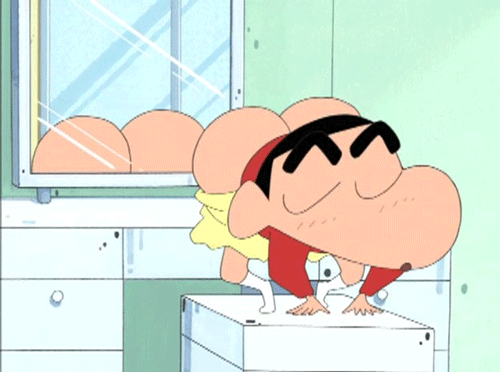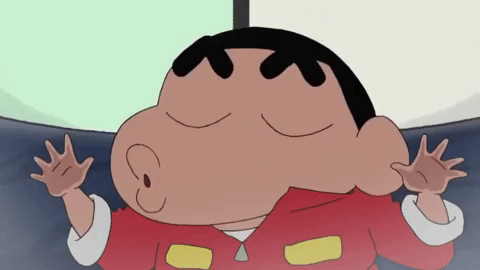Interview: Crayon Shin-chan Director Yuji Muto
by Jordan Ramee & Zac Bertschy,Yūji Mutō is most famous for becoming the third director for the longest-running television anime: Shin-chan, holding this position longer than any other previous director behind the series.
Mutō-san began his professional career directing episodes for TV series such as City Hunter and Tsuruhime Ja!, before moving on to direct the 1993 feature film, Bono Bono. He'd go on to direct Shin-chan in 2004. He's also been the director of Corrector Yui, Haunted Junction, Ultimate Girls, and several other series. This year's Anime Boston 2018 marked Mutō-san's first U.S. appearance, so we took advantage of the opportunity to ask him about his time directing Shin-chan.

You came to Shin-chan after an already impressive career -- what was your first impression of it back then?
Shin-chan exposing his bare butt and going, "booty, booty, booty, booty," is a very childish thing that a lot of people have kind of experienced. So for me, it was like meeting a younger version of myself.

Did your personal approach to directing come naturally to you or did you take a while to get the feel for the material?
I had worked with Hara-san and worked on Shin-chan before taking over. So, I was very familiar with the stylistic choices Hara-san would do as a director. Whenever I approached something, I would think, "If this was Hara-san, this is what he would do." From there, I would ask myself, "Okay, but what should I do?" I would try to implement Hara-san's style while also pulling it towards my own.
That was a very good question! [laughs]
There's actually a strike zone. [starts motioning a square with his hands]. It's called the Hara-san Strike Zone [in reference to Keiichi Hara, Shin-chan's 2nd director]. [motions a separate circle] And then of course, there's MY strike zone. [laughs] So, to not be outside either one of those zones is the key to success.
Once I've found that spot, I'll usually create something that stops just short of where I know Hara-san would be upset with me. [laughs] That's the sweet spot! Now, there's things I would obviously never do to make sure I never cross that line, but there's a lot of things that I take a lot of freedom with. I do things my way, and that's a statement that doesn't just apply to my own stylistic choices. When it comes to other people, like episode directors, they go through the same sort of process.
When they get together, all the episode directors, to talk about what they're going to do for their episodes, they always warn one another to never do something that would make Hara-san really mad, but they ride that line so they can each do what they want to do. It's this line of thinking that leads to the breath of the work.

What are your favorite types of Shin-chan stories to adapt? Are there any types you dread?
There's a mini-series within Shin-chan, called "The Rabbit Who Gets Punched," and that's one where we have to be really careful with the lines that we push because if we go too far it will cause an uproar. It's way too scary dealing with those episodes. They have to be handled with kids' gloves.
Personally, I'm not a a big fan of horror but when I started doing "The Rabbit Who Gets Punched" series, a lot of people who were horror fans approached me and said, "Hey, you really like horror, don't ya?" And I was like, "I don't know...it's kind of scary...I'm not really all that into it." [laughs] Even when I'm only at the storyboard stage, I'll do something scary and go, "Oh, that was scary," and set everything aside and not really look at it again.

What was your favorite episode to direct?
I actually really liked directing "The Rabbit Who Gets Punched" mini-series episodes. Like a lot. The theatrical releases as well!
Like I said before, I'm not a really big fan of horror. But I really like to make horror things! Working on the horror episodes are my favorite.
Thanks to Yūji Mutō and Anime Boston for this opportunity.
discuss this in the forum (4 posts) |